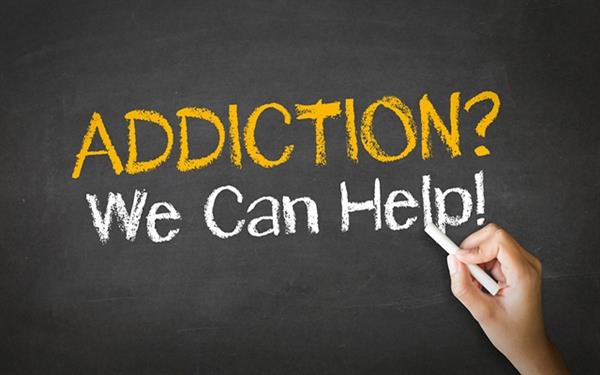Detox From Alcohol Safely and With A Medically Assisted Detox Fast
A medically-assisted alcohol detox can ensure that you don’t suffer while your body and mind recover, increasing the chances of a successful recovery and minimizing the side effects of detox.
Detox is only the beginning. After detox we suggest a residential treatment program where clients learn how to stay sober while living their lives. After successful completion, we recommend our patients stay engaged with one of our outpatient programs across the Houston, Texas area to help them stay sober for good.
During recovery and after you or your loved one graduates, it’s important to remember that detoxing and abstaining from drinking does not treat alcoholism. Even when an alcoholic is abstinent, he or she will still feel the side effects of detox from alcohol.
How long is Alcohol Detox?
Detox from alcohol or any other drug is highly individual. The length of time depends on the level of physical dependency, how often a person drinks and how much. The symptoms can start as early as two hours after the last drink, and increase in intensity depending on the level of alcohol addiction. By five to seven days, the most powerful symptoms will taper off. Alcohol withdrawal is one of the most dangerous detoxes and without medical supervision can lead to strokes seizures and even death.
Alcohol Detox Symptoms
When detoxing from alcohol, a person may experience Alcohol Withdrawal Syndrome (AWS). As stated above, the symptoms can start pretty quickly once a person stops drinking. The severity of the symptoms is also highly individual and dependent on the level of physical addiction to alcohol. Symptoms can include:
- Mild anxiety
- Shakiness
- Nausea
- Insomnia
- Tremors
- Nightmares
- Abdominal Pain
- Confusion
- Fever
- Agitation
- Seizures
- And in some cases hallucinations
Side Effects of Alcohol Detox
Someone detoxing from alcohol can feel any number of other mental and emotional distresses. A medically assisted detox program can help alleviate the severity of these symptoms.
- restlessness
- discontent
- fear
- anger
- anxiety
- depression
- remorse
- guilt
Short Term Effects of Alcohol on the Body
- Blurred Vision
- Slurred Speech
- Dulled Senses
- Reduced Inhibitions
- Reduced Coordination
- Loss of Body Heat
- Increased Urination
- Slowed Breathing
- Unstable Gate
Long Term Effects of Alcohol on the Body:
- Encephalopathy (Wet Brain)
- Irregular Heartbeat
- High Blood Pressure
- Steatosis (Fatty Liver)
- Alcoholic Hepatitis (Cirrhosis)
- Pancreatitis
- Weakened Immune System
- Erectile Dysfunction
- Osteoporosis
Treatment for Alcohol Withdrawal
Because alcohol withdrawal can be extremely dangerous, seeking treatment from an addiction professional is highly recommended. While withdrawal is an often necessary step in the treatment of alcoholism or alcohol dependency, treatment for withdrawal symptoms can make detox safer and more effective for the client. Treatments may include round-the-clock monitoring and prescription medication to stabilize a client’s organ function.
Identifying Alcoholism
In the case of alcoholism, the body also has an abnormal physical reaction to alcohol. This allergy, once developed, produces craving for more, once an alcoholic starts drinking they have little control over the amount they take. Once a person has developed an allergy to alcohol they can never return to a “normal” drinker again. Once a pickle always a pickle, they can never go back to being a cucumber.
Signs of Alcohol Addiction
- Depression
- Guilt about drinking
- Drinking more than you intend to; you can’t control yourself
- Drinking to the point of “blacking out”
- Lying to others about your drinking
- Chronically miss work or family events because of drinking
- Trusted friends or family members have confided that they are worried about your drinking habits
The next risk factor comes from the process of detoxing and the symptoms of Alcohol Withdrawal.
Detoxing from alcohol is the process of slowly weaning your body from the physical effects of alcohol. Often the sufferer will experience symptoms of severe nausea or sickness when undergoing detox. These sensations are known collectively as Alcohol Withdrawal Syndrome.
When you drink every day, the body acclimates to having alcohol in the system and this causes the nervous system to become dependent on a steady level of alcohol. It loses the ability to adapt without alcohol and since detoxing removes alcohol from your system, your body reacts producing the symptoms of Alcohol Withdrawal Syndrome. As a person begins to drink regularly they begin to develop a tolerance and need more and more in order to produce the same effect. Once a person develops alcoholism or alcohol dependence without alcohol they will begin to show signs of withdrawal or detox.
Alcoholism consists of three factors.
- The first is the physical allergy or phenomenon of craving. This is what is unique to alcoholics and never occurs in normal drinkers.
- The second factor is the obsession of the mind. This is where the problem centers and what convinces an alcoholic to take the first drink.
- The third factor is the enteral or spiritual condition known as the malady. This is what causes many of us to be diagnosed with depression bipolar or with anxiety disorders. The restlessness irritability and feelings of discontent are what drive alcoholics to treat their alcoholism with what they know works, alcohol.
Support During Detox from Alcohol
The only way for an addict to overcome the side effects of alcohol detox is to find a support net. An addict’s family should participate in their recovery. Bay Area Recovery Center holds family events every week to bring families together with their loved ones as they go through the steps to recovery. Family members can also go through one-on-one counseling with the experienced staff at the center.
In addition, families can connect with other families going through the same thing. Another resource for families is AL-ANON, a fellowship of relatives and friends of alcoholics who share their experiences, strength, and hope in order to solve their common problems.
Bay Area Recovery Center creates more than an environment for recovery, it also creates an environment through which recovering addicts gain a fellowship of friends and family participating in their lives – lives full of hope and strength – lives that have more texture, color and meaning.
If you or your loved one have gone through a recovery program and you’re wondering, ‘How do I know when an addict has relapsed?’ please call us today. If you’re wondering if they’ve relapsed – they probably have. Recovery is dramatic. The change is dramatic. So, if there’s any doubt in your mind, then it’s probably time to find help.
We do not recommend going it alone when detoxing from alcohol. We treat alcoholism every day and have been helping people overcome their alcohol addiction for over 30 years. To finally take the steps needed to help you or a loved one with their alcohol use, call us at (281) 915-1592 and let us take it from here.
Bay Area Recovery Center has successfully treated individuals dependent on drugs and alcohol for over 30 years. People need to know treatment does work and there is life after alcohol addiction. Let us use our experience and expertise to develop a detox and treatment plan that is personalized to your situation. The illness of addiction is not something you or your family should have to go through alone. We can help.
Common Slang Terms for Alcohol:
- Booze
- Hooch
- Sauce
- Vino
- Suds
- Liquid Bread
- Drink or Drinks
- Juice
While the chances of overdosing on alcohol is very low compared to other “harder” drugs, alcohol poisoning and alcohol withdrawal are real threats that come with their own risk factors.
First let us look at Alcohol Poisoning. From your body’s perspective, alcohol is a poison; it is toxic and your body will fight to remove it. When the body can no longer keep up with the amount of intake given, alcohol poisoning occurs.
Symptoms of alcohol poisoning include unconsciousness, vomiting, confusion, a blue pallor of the skin, and stupor.
A hangover is the most common symptom of mild alcohol poisoning. Following a period of rapid alcoholic consumption, usually the next morning, a hangover is the body’s response to the flood of poison received. Symptoms include pounding headaches, light sensitivity, vomiting, and irritability.
The abuse of alcohol is known as Alcoholism, Chronic Alcohol Use, and Alcohol Use Disorder, or AUD, and affects 16.3 million adults in the United States. This figure accounts for 6.8 percent of all adults. As of 2015 there were an estimated 679,000 children aged 12-17 who reported to be suffering from AUD. Alcoholism is a sickness that should be understood as a chronic disease that should be treated regularly.
People who suffer from alcohol addiction find it difficult to quit drinking even when they want to and make an attempt to limit their intake. They experience a strong urge to drink and habitually consume alcohol even when it causes trouble with their family, friends, and work.
Binge drinking is commonly associated with alcohol addiction. Binge drinking is the onset of several alcoholic drinks over a relatively short duration of time. The National Institute of Alcohol Abuse and Alcoholism (NIAAA) defines binge drinking as drinking enough drinks to raise blood alcohol concentration levels to .08 grams per deciliter in a two-hour period. This is reported to be five drinks for men and four drinks for women. Approximately 92 percent of United States adults who drink heavily have binged on alcohol in the previous 30 days.
Is there an Alcohol Detox Center near me?
Yes! Bay Area Recovery Center has locations in Central Houston/Pearland, East Houston/Clear Lake, Dickinson, Pasadena and North Houston/The Woodlands. When you are ready to start your recovery, we are here to help.
Is it time to get started?
If you have additional questions, please feel free to call us and we’ll be happy to help. You can also complete this simple form and we’ll get in touch as soon as we can.






